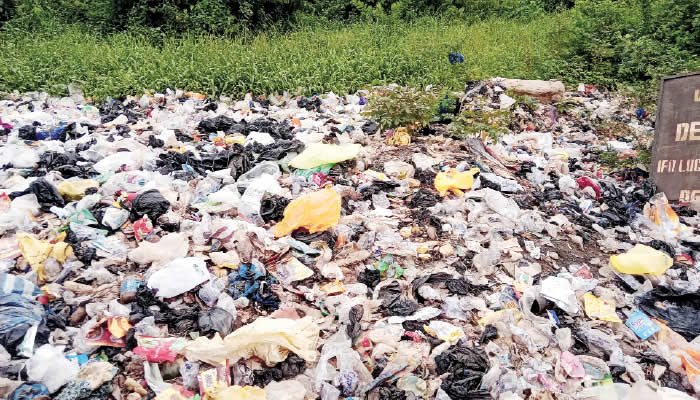ASHENEWS reports that an expert has emphasized the critical importance of prioritizing proper waste disposal practices among residents of Sokoto for the betterment of their environment and overall health.
This call to action came from the state’s assistant environmental health officer, Haruna Gobir, as part of a broader advocacy initiative spearheaded by the Primary Health Care Development Agency of Sokoto state.
“Our environment is where we reside, not the government or any other entity. Therefore, our safety is directly linked to the cleanliness of our surroundings. By maintaining a clean environment, we reduce our risk of exposure to various diseases and can lead healthier lives,” said Gobir during his address while emphasizing the intrinsic connection between a clean environment and public health.
Acknowledging the concerted efforts of past and present administrations in advancing eco-friendly policies, Gobir lauded the engagement of a waste management company by previous government administrations.
“The previous government has engaged a company on waste collection and disposal and of course before the 100 days in office of this sitting government, Sokoto state was sanitised.”
He also noted the recent sanitation efforts initiated within the first 100 days of the incumbent government.
However, Gobir expressed concerns over the underutilization of waste management facilities provided by the government.
He stressed the urgent need for behavioural change communication to ensure that citizens fully engage with waste disposal initiatives, regardless of associated costs.
“There is an absolute need for behavioral change communication on how the people are using the refuse banks, most has neglected this initiative because it is paid for. But the problem is as a professional, our voices needs to be amplified so that it gets to the rightful actors,” Gobir lamented
ALSO READ: NGO seeks urgent action to end stereotypes, stigma against women
Also, a resident of Bado Quarters, Mr. Yahuza Esa, resounded sentiments regarding waste management as a constitutional obligation of the government, particularly in challenging times.
“For quite some years now, they brought these waste banks which we thought the services will be rendered free which in a constitutional sense, should be. We registered through, but in this trying time, I don’t think I personally need this service.”
However, he questioned the necessity of paid waste collection services.
In response, Gobir drew a parallel between personal hygiene responsibilities and waste management, emphasizing individual accountability.
“When you are raising your house, is it government that build your toilet? That’s a waste you take care of for your family’s health sake. This is also a waste you have to take care of not government.”
“It was the Sardauna’s government that shoulders taking care of refuse for its people out of love and compassion that we see it as government duty today. But we are calling on the government to continue and revamp this gesture.”
He urged residents to view waste disposal as a collective duty, reminiscent of the government’s historical role in ensuring public welfare.
Gobir appealed to the government to facilitate effective communication channels to educate and orient citizens towards proper waste disposal methods, thereby fostering a cleaner and healthier environment for all.


